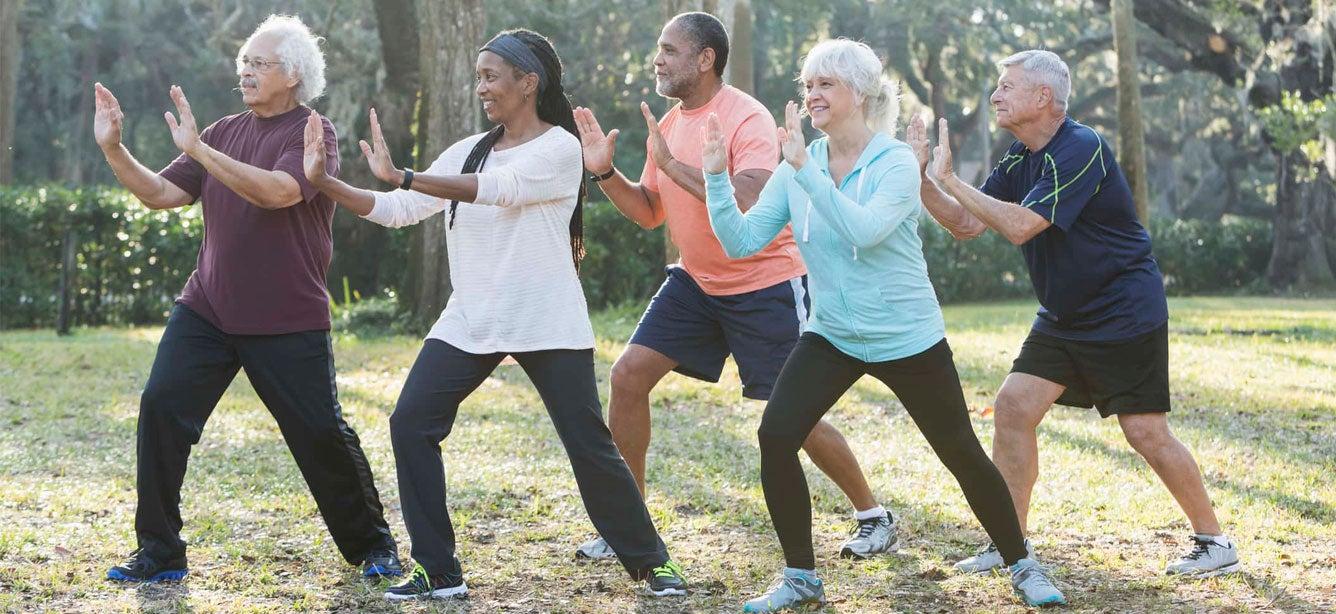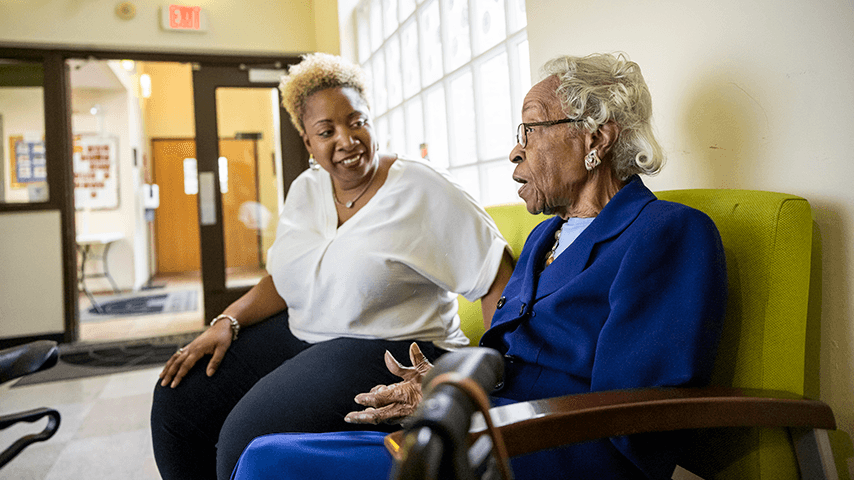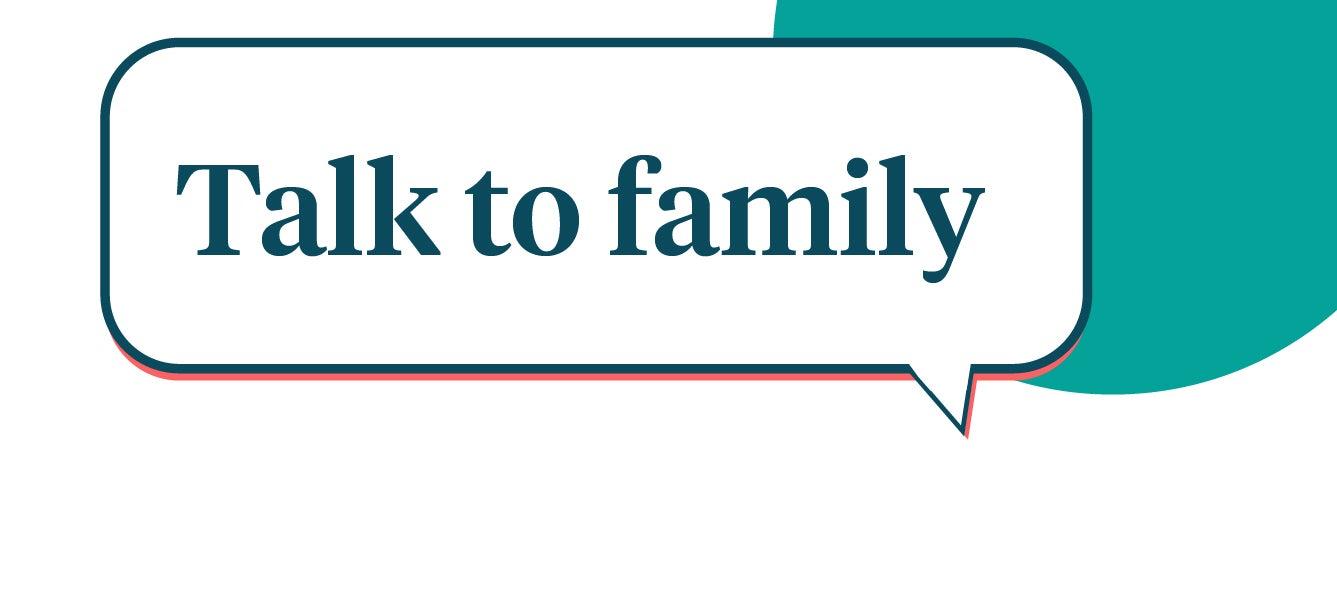
Related Topics
We all know someone who has had a fall. You may think it won’t happen to you. But falls are the leading cause of fatal and non-fatal injuries among older adults.
The good news is that you have the power to prevent a fall. There are programs that are proven to reduce your chance of falling. They are fun and effective—and they can help you stay independent and active.
Tai Chi
Tai Chi looks like an exercise class, but it’s so much more. The practice includes slow, low-impact, and controlled movements and body positions. The movements improve the parts of your body needed for increased balance, strength, and flexibility, and the practice teaches you awareness.
“A lot of these movements help memory, cognition, help awareness of where we need to be in time and space so that people are more aware of where their foot is in relationship to a curb so they don’t fall,” explains Diane Saccone, Healthy Aging Initiative Director, YMCA.
“I’ve always been clumsy, so Tai Chi has offered me the opportunity to be able to think more about what I’m doing, pay attention to what I’m doing, and not fall. I’m able to catch myself if I trip over something because of Tai Chi,” says Velma Chapman, a Tai Chi participant.
Stepping On
If you’re still pretty steady on your feet, but you want to be proactive about preventing a fall, Stepping On may be the class for you. The multi-week class is designed for people who live independently, but are worried about falls or have fallen in the past.
“At 76 years of age, I think I know everything, but I found out that there were a lot of things I don't know. And by taking this course, I've learned some of the things that I can do without the risk of falling. And to eliminate those things that create the risk of falling,” says Bill Johnston, a Stepping On participant.
“After performing Stepping On, your fall risk decreases because you're given an awareness of those factors that cause falls, you have exercises to strengthen your legs, improve your balance and give you strategies to rise from the floor, in case you do fall,” explains Dr. Dennis Kilma, Associate Professor of Physical Therapy, University of Maryland Eastern Shore.
A Matter of Balance
A Matter of Balance is a group class that can help reduce your fear of falling, and teaches the importance of activities so you can stay independent. The eight-session class is for people who are concerned about falling, and many of the exercises are practiced while sitting down.
“An older adult can start A Matter of Balance at any time, whether they’re healthy or they have some disability situations," says Linda Luzon, In-Home Skilled Care, Park Ridge Home Health. "The benefits of the Matter of Balance will help them not just through the exercises, but through the strategies that they learn to deal with decreasing their risk of falls.”
“Yesterday, I went out to do the very activity that had made me aware of my need in the first place," says Charlene Anderson, A Matter of Balance participant. "I did not feel as unsteady and as insecure as I had originally. I had a lot more confidence and I was able to take my steps confidently, and I felt much more secure. So I just feel like it was very beneficial.”
Otago Exercise Program
It’s never too late to take steps to prevent falls. The Otago Exercise Program is delivered by a physical therapist to older adults who aren’t able to get around as well, but want to be safe in their homes. You will learn exercises to help improve your strength and balance either one-on-one or in a small class setting. To get started, the physical therapist will evaluate you and then design a tailored program of progressive exercises.
“I've been wanting to do exercise for a long time and it's very, very hard for me to do it by myself, and so I started participating in Otago and it has really changed my life. It's wonderful,” explains Beth James, an Otago participant.
“Otago is very good for improving strength and improving balance. With that, it has been shown to be very effective for reducing falls by about 35 to 40 percent... Most people within their first five or six visits, within the first eight weeks will notice improvements in their balance,” says Lori Schrodt, PT, PhD, Western Carolina University.
Take the First Step Toward Falls Prevention Today
The secret to successful falls prevention is action.
“I thought I was in pretty good shape, but boy was I wrong. I’m so glad that I did it!” says Shirley Boudousquie, A Matter of Balance participant.
Participating in an evidence-based falls prevention program can lower your chances of a fall—keeping you safe and independent. They can save you hundreds of dollars in medical costs. And remember, falls prevention is a team effort! Be sure to enlist the support of your friends and family.
Visit Falls Prevention For Older Adults today to get tips on how to prevent a fall. Contact your state Falls Prevention Coalition or ACL Falls Prevention Grantee to find a fall prevention program in your area.


